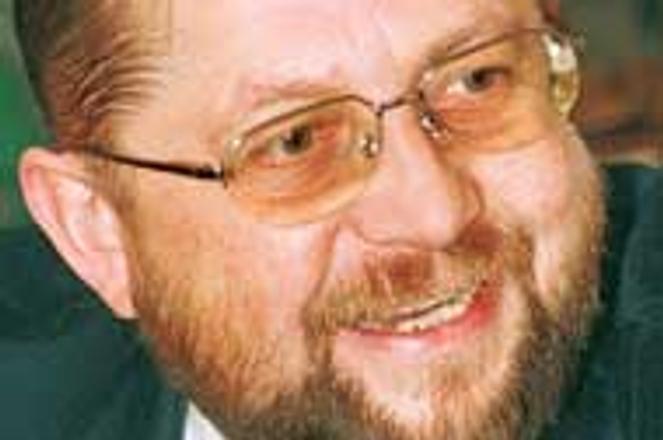HARABIN remains in charge.photo: TASR
THE RE-ELECTION of Štefan Harabin to his second five-year term as Supreme Court chief justice dashed hopes of reform in Slovakia's judicial system, with critics declaring that Harabin has a history of covering up rather than facing problems.
Harabin's re-election was described as "bad news" by Justice Minister Daniel Lipšic, who was "a bit sceptical" that the country's top court under Harabin's leadership would be open to the reforms he thinks are needed to rid the judiciary of its reputation for bribery and tardy court proceedings.
On December 20 Harabin was endorsed by 10 out of 18 members of the Judicial Council (SR), an authority entitled to decide on personnel matters in the judiciary. Two SR members did not cast ballots, so Harabin beat his only opponent in the race, Supreme Court Justice Sergej Kohút, by four votes. The election also automatically reconfirms Harabin as head of the SR.
Refusing to comment on the widespread criticism that greeted his re-election, Harabin maintained that he was interested in solving the problems that exist within the judiciary and asserted that the December 20 vote was proof that he was the right person for the job.
"I will not comment on the criticism. The Judicial Council gave me their trust and that is my response to all criticism. I rightly represent the opinions of the judiciary, will defend the judiciary from political attacks, and will fight to strengthen the independence of the judiciary," Harabin told The Slovak Spectator January 6.
Minister Lipšic, however, expressed doubt that Harabin was the best choice.
"The judiciary is in need of large-scale reforms. There are problems such as disproportionately long court proceedings and various personnel issues that need to be addressed. So far, Mr Harabin has covered up rather than addressed these problems," Lipšic said.
Ever since he first took up his post at the Supreme Court in February 1998, Harabin, a nominee of the then-ruling Slovak National Party, was in almost constant conflict with Lipšic's predecessor, former justice minister Ján Ćarnogurský.
During his tenure he has resisted the introduction of a computer-driven case-management system that has cut down judges' administrative work in other courts and thus helped reduce massive case backlogs. The system also ensures a random assignment of cases, a tool that prevents the untransparent distribution of the judicial agenda.
The Supreme Court has thus far failed to install the system, despite repeated calls by past and present justice ministers for Harabin to do so.
Harabin claims that he is prepared to install the system as long as the Justice Ministry produces such case-management projects as would suit the needs of his court's diverse agenda. He also claims that he always got on fine with justice officials.
"I don't have bad relations with ministers and I never have had. I just have slightly differing opinions on how problems should be solved, but I think that is normal in every pluralistic democratic society," he said.
"I am willing to discuss issues with everyone who cares about solving the problems but not with those who want to carry out political purges [among the judiciary's ranks]," Harabin said.
Although admitting corruption is among the judiciary's biggest problems, Harabin does not think it is as widespread as has been suggested in various surveys, which repeatedly ranked courts among the top three most-corrupt institutions in the country.
"Our society finds itself in a certain state and the judiciary is not isolated from society. However, it is [not fair] to put the burden of corruption to such a massive extent on the shoulders of judges. Corruption is somewhere else. In the judiciary, corruption is far smaller than in other spheres, including in the higher echelons of politics," Harabin said.
"The judiciary is one of the most trusted institutions [in Slovakia] and [critics are] purposefully creating a negative image of it just because it behaves independently and has not succumbed to political pressures."
That interpretation prompted Lipšic to comment that "Harabin's relationship to the truth is lukewarm".
"This confirms that he is closing his eyes to an obvious problem. [Because of corruption and the slowness of court procedures], the judiciary unfortunately is among the least trusted [institutions]. As long as judges do not address this, the situation can only get worse. Turning their heads away won't help," Lipšic said.
One of Harabin's opponents, SR member Juraj Majchrák, who also leads the Association of Slovak Judges (ZSS) and works as deputy chief justice at the Supreme Court, was apparently so disappointed with the SR's vote that he thought about quitting the top court.
"I cannot explain [the vote]," he said.
Although no date has been set for the official appointment, President Rudolf Schuster has confirmed that he will name Harabin to the post.
The local media has pointed out that Schuster does not automatically have to endorse the SR's pick, but the president's spokesman, Ján Fule, told The Slovak Spectator that "Mr Harabin complies with all legal conditions for the post and the president has no reason not to name him".
"Harabin was elected in a democratic vote whether we like [the choice] or not," Fule said.


